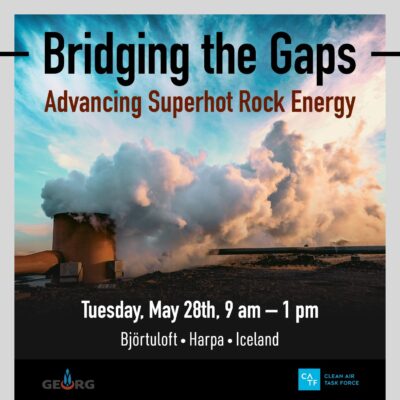Swiss government funding of $65m to geothermal project in Haute-Sorne, Switzerland
The planned geothermal project in Haute-Sorne, Canton of Jura in Switzerland has secured funding of CHF 64 million ($65m) for exploration work.
In a release shared today by Geo-Energie Suisse, it is announced that the Swiss Federal Office of Energy will support the geothermal project in Haute-Sorne (JU) with a reconnaissance contribution of CHF 64.1 million (ca $65m) (Art. 33, Energy Act). The project should begin with the first exploration well in the deep rock of the Jura arc.
The planned pilot project for deep geothermal energy in the Jurassic Community of Haute-Sorne was approved in December 2018 by the Federal Supreme Court last year. The cost contribution for exploration now guaranteed by the Swiss Federal Office of Energy (SFOE) is based on the new Energy Act (see SFOE press release). The contract with the Confederation provides for a maximum contribution of CHF 64.1 million, which will be paid out step by step, depending on the progress of the work.
Geo-Energie Suisse AG (GES) is pleased about this important support that the federal government is making for the development of deep geothermal energy in Switzerland. The decision confirms the quality of the security concept and underlines the national significance of the project in Haute-Sorne for the energy revolution decided by the Swiss people.
According to the project timetable of GES, the work begins with a first exploration well at great depth to obtain detailed baseline information on the nature of the subsurface. This phase is largely risk-free because it only measures and does not inject large volumes of water as in Basel. The planned drilling represents the first in-depth survey of the entire Jura arc and will provide new, valuable insights into the underground of the region. On the basis of these results, those responsible will assess whether the project should be pursued with a second well and a new process that, unlike Basel, allows the subsoil to pass through small increments of water in individual stages. A Monitoring and Information Commission will begin its work. This dialogue platform will ensure transparency throughout the project as well as take into account the concerns of all stakeholders and the public.
The Jura Cantonal Government is currently awaiting the results of an opinion on the 2017 earthquake in Pohang, South Korea, with which it has commissioned independent experts from the Swiss Seismological Service (SED). On the basis of this investigation, the cantonal government will decide on further steps.
Information about the project can be found on a specific project website (in French).
In local newspaper Tagesanzeiger, it is reported that the new energy legislation in Switzerland can allocate up to 60% of the applicable investment costs, such as drilling, measurements, stimulation work and the monitoring system. The estimated costs for the project are around CHF 106 million ($107m), so Peter Meier, Managing Director, Geo Energie Suisse.
Source: Geo-Energie Suisse


















